Ed Thomas, Rebecca Wearn, Alix Hattenstone & Patrick Clahane
BBC News
Watch: Shops selling illegal tobacco on a Newport high street make locals feel unsafe
Along a one-mile stretch of road near the centre of Newport, 19 shops have been shut down in the past nine months for selling illegal tobacco and vapes.
"It's shameful that this is happening," says Steve Hay, one of the Trading Standards team responsible for the closures. He says the sale of illegal goods is a crime causing deep problems in the community.
In South Wales, the BBC was told of criminal gangs using forced labour, mini-marts staffed with illegal workers and cars filled with drugs and fake cigarettes. It is just a glimpse of what one Trading Standards officer describes as an "endless battle" against the illegal tobacco and vape trade in Britain.
People living and working near shops like these have told the BBC they are terrified by the criminality surrounding them, with reports of intimidation, open drug dealing and an acid attack.
Illegal cigarettes, tobacco and vape products were seized from 3,624 shops across England, Scotland and Wales in 2024-25, according to BBC Freedom of Information (FOI) requests.
Responses were gathered from 169 local Trading Standards teams, out of an estimated total of 187. Many of the seizures came from convenience stores and vape shops, but illegal goods were also found in several other high street shops, including takeaways, beauty salons and even a carpet repair shop.
The trade "undermines legitimate retailers, funds wider crime, and harms public health" according to HM Revenue and Customs, and deprived public services of nearly £72m in 2023-24. What's more, local authorities have limited powers to tackle the problem.
In Newport, some of the closed shops still have the shutters down, but others appear to be back in business. Young men sit outside them, smoking and chatting in the sunshine.
Watching it all with frustration is Erol Kaya, who runs his own legitimate international supermarket on the same road. A Turkish-born Kurd, he has lived in South Wales for 26 years and says he now witnesses the brazen sale of illegal goods every day.
"I'm not happy," he says, his voice rising with emotion. "I'm paying tax, my staff paying tax, and people [are] making illegal money." He adds that customers have told him they are now scared to visit the road, especially after dark.
Only some councils have the power to shut these establishments down, and even then, only usually for three months. Fewer than 300 shops were shut down in this way in the past year, according to our FOI requests.

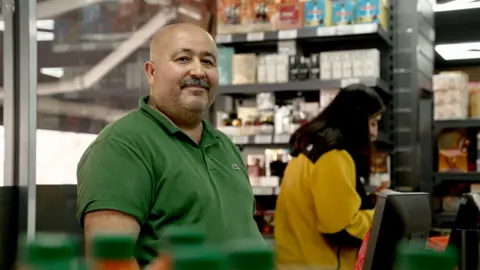
Shop owner Erol Kaya says he witnesses the selling of illegal goods every day
'Elusive owners'
Behind the bright crisp packets and fizzy drink bottles lining the shelves of an east London convenience store, there is not a lot of stock.
"I think this is our fourth visit," says Nazir Ali, from Barking and Dagenham Trading Standards.
The owners of this business, he says, are elusive, which makes it difficult to close the shop. "Every time we've been here, we've found concealments."

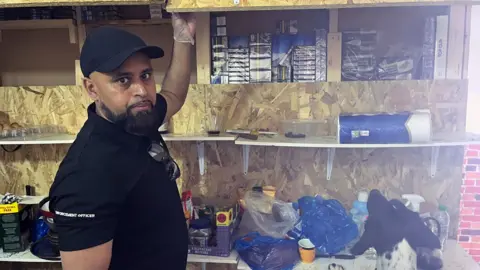
Trading Standards officer Nazir Ali reveals a stash of illegal goods
Out back, it looks almost empty – until a sniffer dog finds stacks of illegal cigarettes and tobacco inside a makeshift wall. Ali estimates they are worth more than £5,000.
He says that is enough to temporarily close the shop. But under current legislation, he still has to prove antisocial or nuisance behaviour.
Illegal goods were seized from 245 shops in the borough in 2024-25, the highest number in Britain of the councils that responded to BBC requests.
But FOI figures show that, like many councils, Barking and Dagenham didn't report any shop closures between April 2024 and 2025. A spokesperson says the council continues to work with businesses where appropriate, considering the full range of enforcement tools available including closure orders.
'Stash cars'
In Newport, by contrast, the Trading Standards team has temporarily shut down all but one of the 28 shops it seized from in 2024-25.
However, closing shops does not necessarily make the problem go away.
Criminals will either wait for a shop to re-open or simply move to a vacant site nearby.
Often, the illegal stock is stored in "stash cars" parked near the closed shop.
"It's not good enough, it's appalling and I'm desperately sad it's happening," Steve Hay tells us. "You can't stop crime as a whole, but it should not be so visible and accessible."

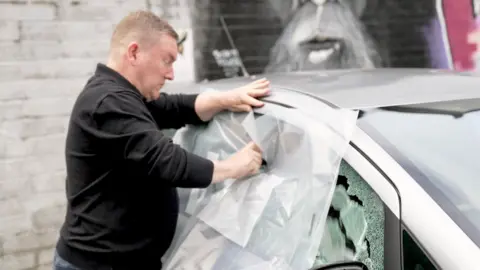
Trading Standards officer Steve Hay breaks the window of a suspected 'stash car'
On raids 40 miles away in Swansea, Trading Standards officers say the stash cars may contain drugs as well as counterfeit cigarettes.
Rhys Harries, an officer there told us: "It's tobacco in the day, drugs in the night."
He tells us trying to enforce the law can be perilous: "I've had officers that have been threatened. My car windows have been smashed in the past. It is a serious crime and we're dealing with serious criminals."

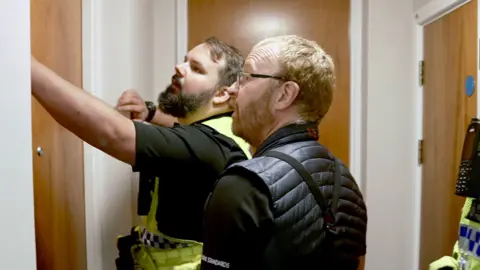
Trading Standards team leader Rhys Harries (right) says some of his officers have been threatened
There are also issues with immigration crime and illegal working. On a raid with Swansea Trading Standards, immigration officers arrested an asylum seeker - an Iraqi Kurd without right to work in the UK. They suspected he was in control of a tobacco stash car.
'I don't feel safe'
The BBC spoke to three shop workers in South Wales, all too scared to be identified. One described seeing acid thrown during an argument between mini-market staff.
Another woman, who has worked in a shop for more than 30 years, says she sees drug dealing every morning.
"There's no control. It doesn't feel like home now," she says.
One man we spoke to - Daniel – says he is repeatedly seeing high street raids and criminality.
"It doesn't make me feel safe. I've got kids," he says.
He has dual UK-Chinese nationality and has lived in Swansea for much of his life. Now he says he is thinking about moving his family back to Hong Kong.

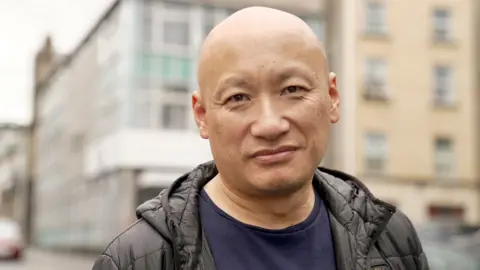
Swansea has become a hub for counterfeit rolling tobacco, says Harries. He says the trade is controlled by Chinese gangs in the city who are making "phenomenal" amounts of cash this way.
Chinese migrants, brought in on student visas, are forced to work illegally and stuff hundreds of pouches of tobacco every week, he says.
"The amount of money [the gangs] they can make selling tobacco is greater than if they were selling drugs," he explains.
The counterfeit tobacco is supplied to predominantly Kurdish gangs, who then sell it under the counter in mini-marts, according to Harries.
'No good for the future'
Nazir Ali says he would like to see clearer legislation and more resources to support Trading Standards in taking action against shops selling illegal goods.
Some local authorities have powers to apply to magistrates' courts for closure orders under antisocial legislation.
But these can only be issued if it can be proved that a premises is a serious nuisance to the public or disorderly, offensive or criminal behaviour is likely to occur.
On the limited occasions when councils report shops closing permanently, this is generally through Trading Standards working with landlords who evicted tenants.
Tougher rules introduced in 2023 mean those convicted now can face higher fines of up to £10,000 - but this may still be lower than the value of the counterfeit cigarettes being sold.
In a statement to the BBC, the Home Office says that "over 500 town centres are getting extra neighbourhood patrols" and that these would have a major role in cracking down on the sale of illegal tobacco products.
It adds that "Border Force is working to ensure [these products] don't make it to our shelves in the first place, seizing over 97 tonnes of illegal tobacco last year."
The chief executive of the anti-smoking charity Ash, Hazel Cheeseman, says that although the illicit tobacco market has declined over the last few decades, it remains a concern.
She urges the government to pass legislation to toughen licensing rules for the sale of tobacco, and gradually phase it out altogether.
Meanwhile, the situation in Newport is making Erol question the safety of raising his family in South Wales.
"I'm a foreigner… but this country is my kids' country, my grandkids," he says.
"If this country is not strong, it's no good for the future."
.png)
 4 months ago
15
4 months ago
15
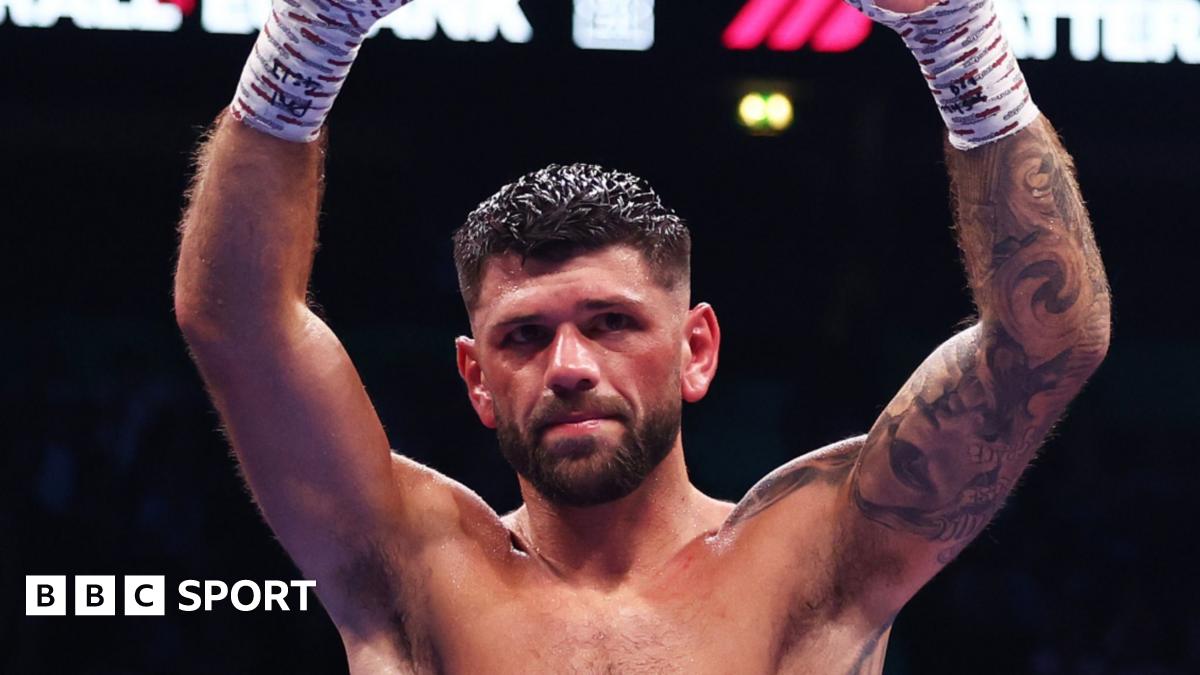
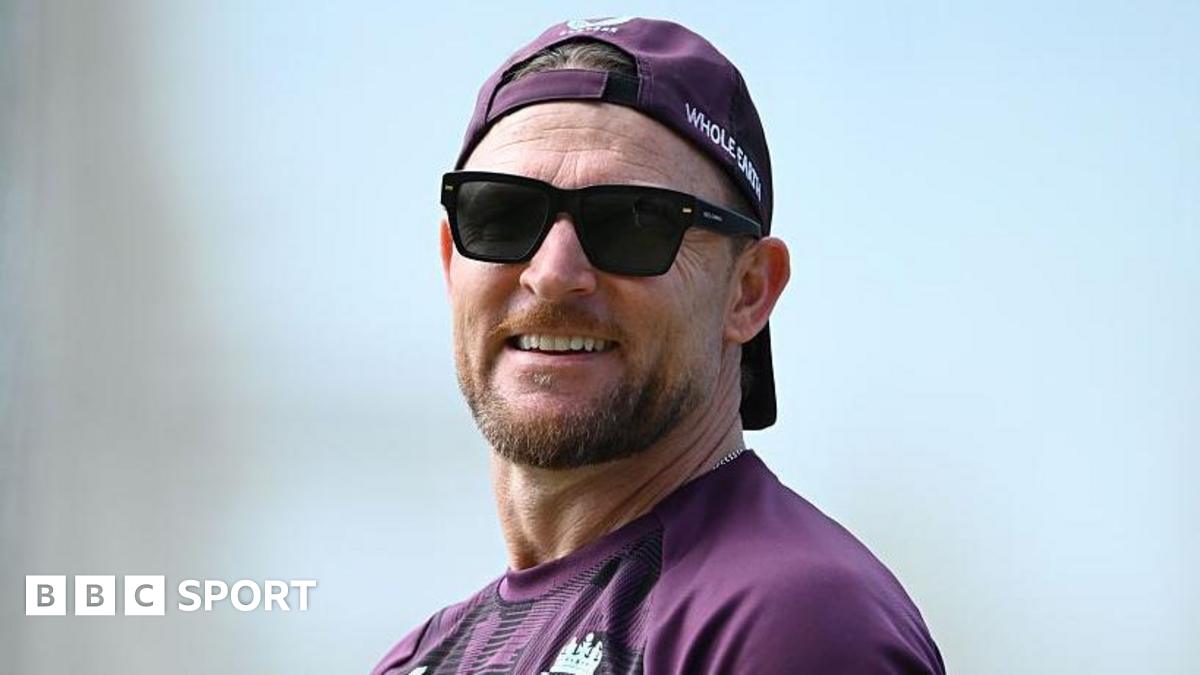
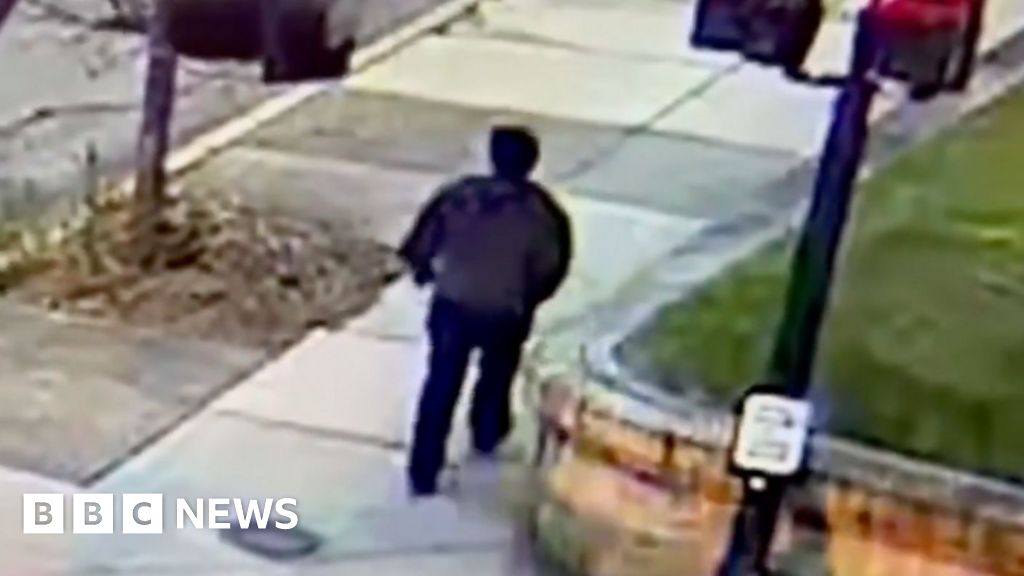





 English (US) ·
English (US) ·